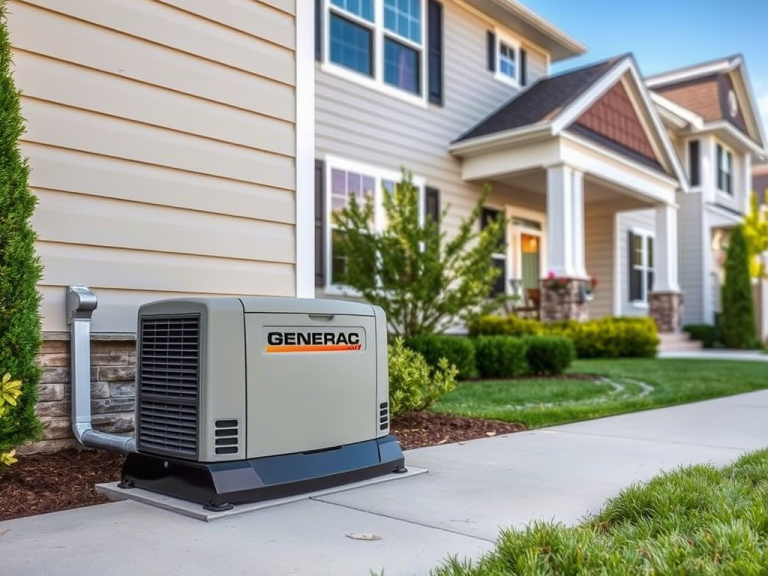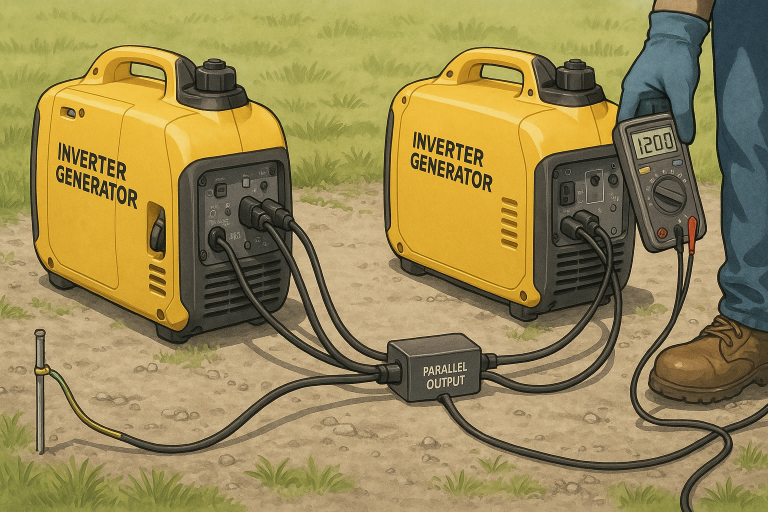What Generators Run On Natural Gas?
Generators are essential pieces of equipment that is used to provide power when it is not available from the grid. There are many different types of generators, and they can run on a variety of fuels, including natural gas. In this article, we will take a closer look at generators that run on natural gas, and how they are used in various settings.
What are generators?
Generators are devices that convert mechanical energy into electrical energy. They work by using an engine or turbine to turn a rotor, which generates an electric current. This current is then sent through a transformer, where it is stepped up or stepped down to the desired voltage and frequency. Generators can be used to power a wide range of equipment, including lights, appliances, and machinery.
There are many different types of generators, including standby generators, portable generators, industrial generators, and CHP (combined heat and power) generators. Standby generators are used as a backup power source for homes and businesses. They are typically installed outside and are connected to the natural gas line or propane tank. In the event of a power outage, standby generators automatically start up and provide power to the building.
Portable generators are smaller, portable units that can be used in a variety of settings. They are commonly used for camping, construction sites, and as a backup power source during an outage. Some portable generators can run on natural gas, as well as gasoline or diesel.
Industrial generators are large-scale generators that are used in industrial settings, such as factories, warehouses, and power plants. They are designed to provide a reliable source of power for heavy-duty equipment and can run on natural gas, as well as other fuels like diesel or propane.
CHP generators, also known as cogeneration generators, are designed to generate electricity while also capturing and using the waste heat that is produced. They are often used in commercial and industrial settings and can run on natural gas, as well as other fuels like biogas and biomass.
Why choose natural gas?
Natural gas is a popular fuel choice for generators because it is clean, efficient, and readily available. When burned, natural gas produces significantly fewer emissions than other fossil fuels like coal and oil. It is also more efficient, meaning that it produces more energy per unit of fuel compared to other fuels.
In addition, natural gas is widely available and can be easily transported through pipelines. This makes it a convenient and reliable fuel source for generators.
Applications of natural gas generators
Natural gas generators have a wide range of applications and can be used in a variety of settings. Some examples include:
- Homes and businesses: Standby generators that run on natural gas are a popular choice for homes and businesses as a backup power source. They can provide power during outages, storms, and other emergencies, ensuring that critical systems and appliances continue to operate.
- Construction sites: Portable generators that run on natural gas are often used on construction sites to provide power to tools and equipment. They are easy to transport and can be used in a variety of outdoor settings.
- Industrial settings: Industrial generators that run on natural gas are used in a variety of industrial settings, including factories, warehouses, and power plants. They are designed to provide a reliable source of power for heavy-duty equipment and can run for long periods of time without the need for frequent refueling.
- CHP systems: CHP generators that run on natural gas are used in commercial and industrial settings to generate electricity and capture waste heat. They are an efficient and sustainable way to meet energy requirements, as they can reduce the amount of energy that is lost during the generation process.
In addition to these applications, natural gas generators are also used in a variety of other settings, including hospitals, schools, and government buildings. They provide a reliable source of power in situations where grid power is not available or is unreliable.
Advantages of natural gas generators
There are many advantages to using natural gas generators, including:
- Clean and efficient: As mentioned earlier, natural gas is a clean and efficient fuel source. It produces fewer emissions than other fossil fuels, and is more efficient at converting fuel to energy.
- Widely available: Natural gas is widely available and can be easily transported through pipelines. This makes it a convenient and reliable fuel source for generators.
- Cost-effective: Natural gas is often less expensive than other fuels, which can make it a cost-effective choice for generators.
- Long lifespan: Natural gas generators have a long lifespan and require less maintenance compared to other types of generators. This can result in lower operating costs and reduced downtime.
Disadvantages of natural gas generators
There are also some disadvantages to using natural gas generators, including:
- Dependency on the natural gas network: Natural gas generators rely on the natural gas network, which can be disrupted by events such as earthquakes, storms, or other disasters.
- Limited range: Natural gas generators are limited to the range of the natural gas pipeline, which may not be available in all locations.
- Safety concerns: Natural gas is flammable, and there is a risk of gas leaks or explosions if the generator is not installed and maintained properly.
Conclusion
Generators that run on natural gas are a popular choice because they are clean, efficient, and widely available. They have a wide range of applications and can be used in homes, businesses, industrial settings, and more. While there are some disadvantages to using natural gas generators, they offer many benefits and can provide a reliable source of power in a variety of situations.


